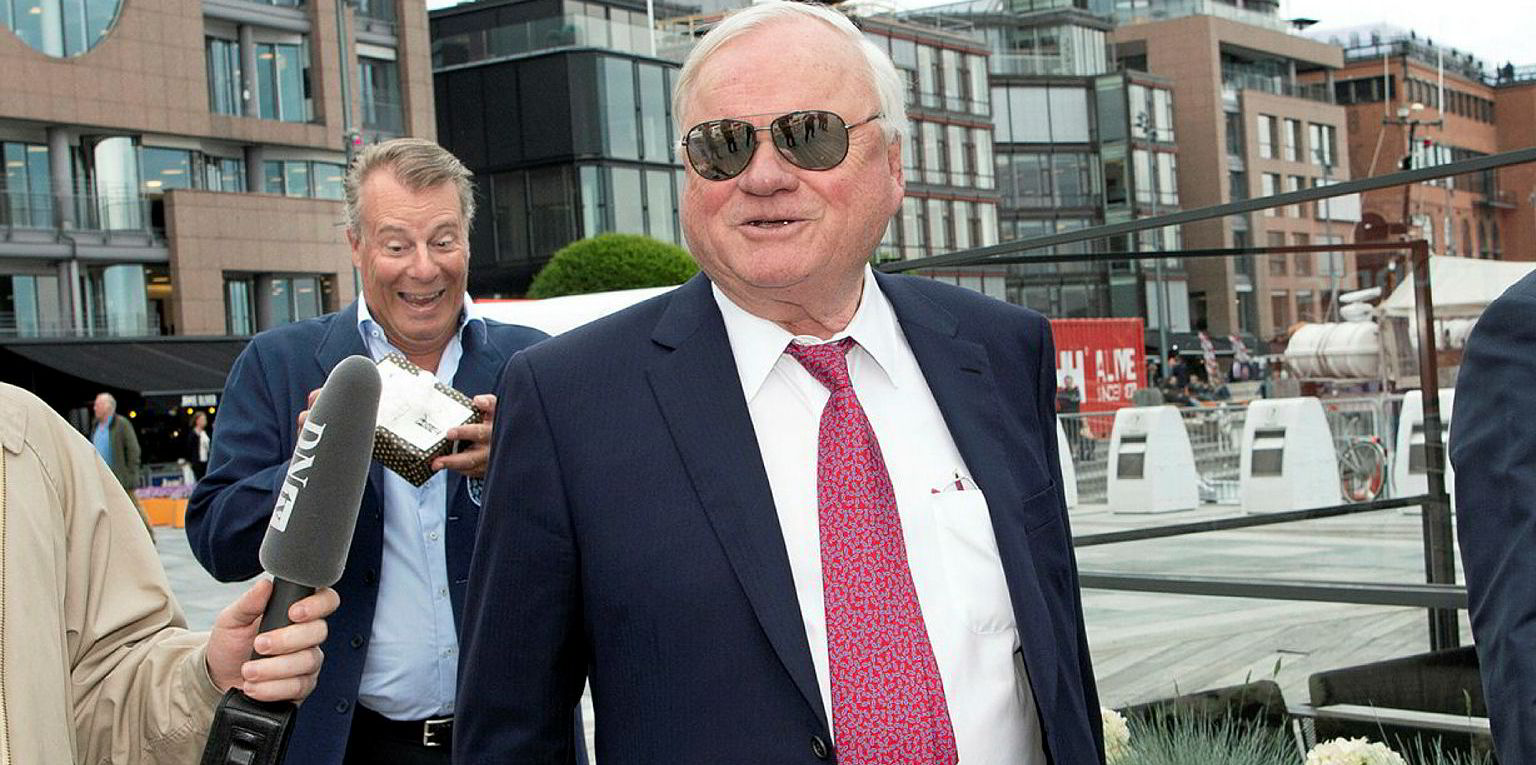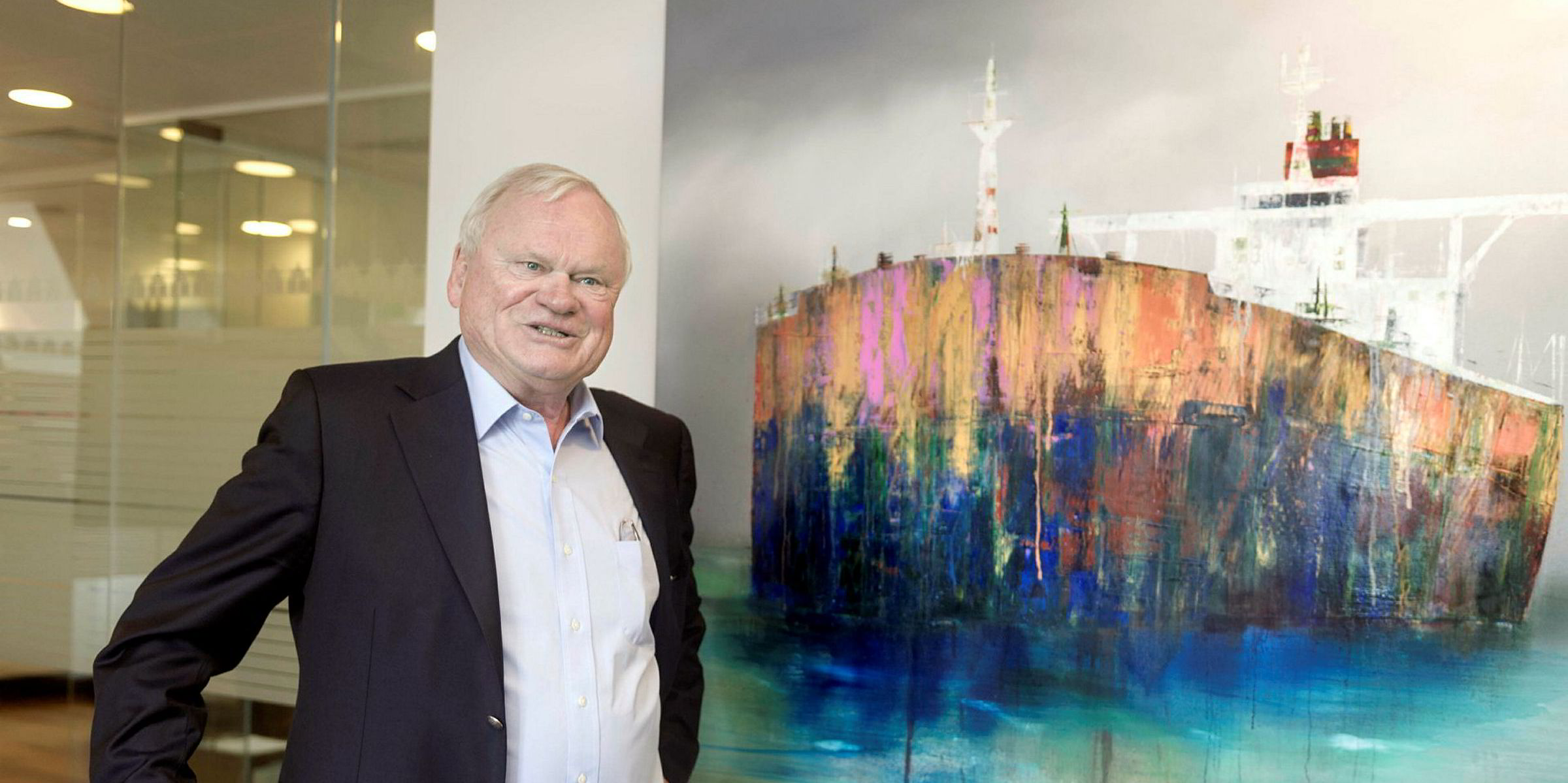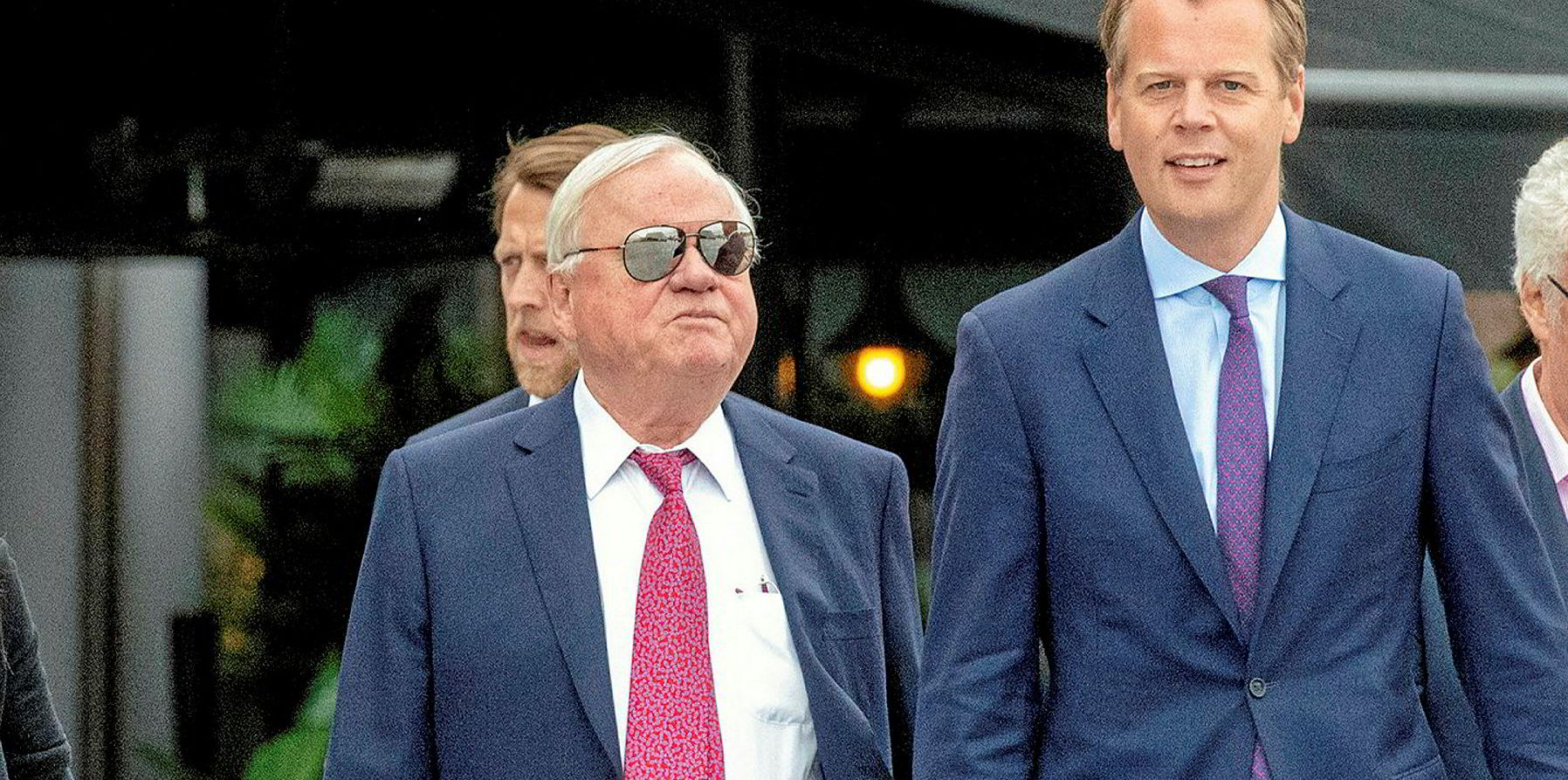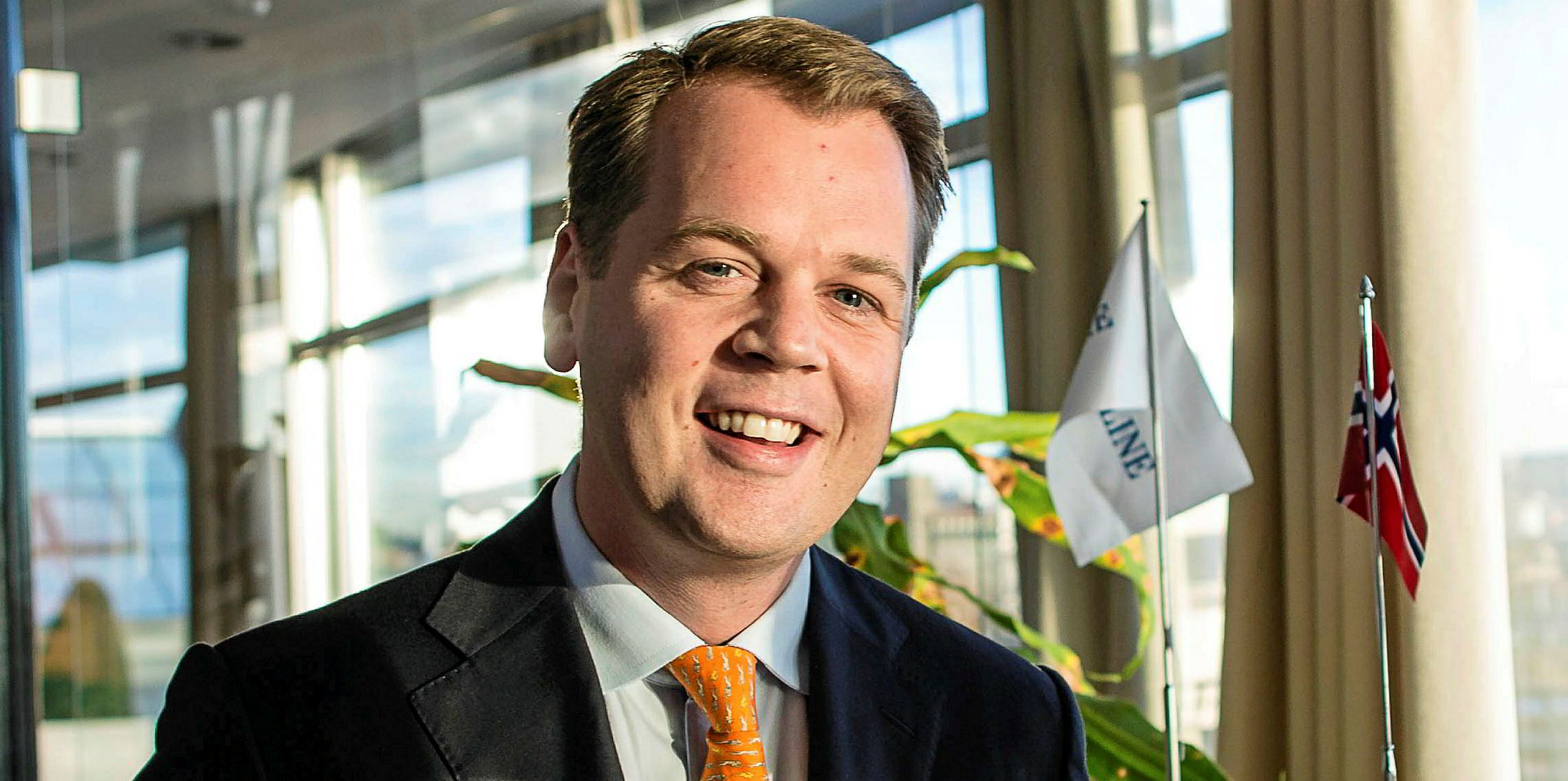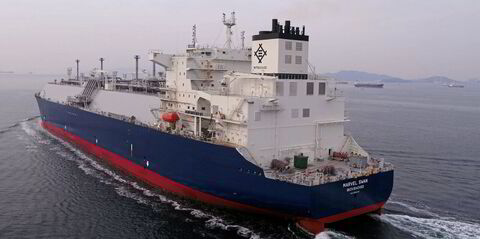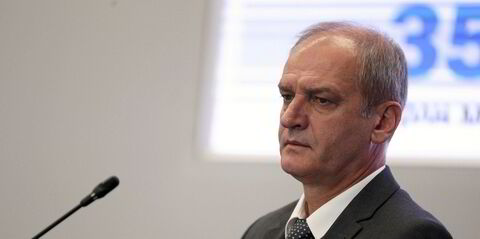John Fredriksen aims to open the management and ownership of his empire to new people and investors in a bid to get back to his shipping roots in later life.
The Norwegian billionaire, who turned 75 in May, said he hopes to hand his network of tanker, bulker and rig companies to a new generation of executives to run, allowing his twin daughters to follow a different path in life.
“It would be nice eventually to transfer more responsibility and more of the ownership to others. I am looking for people who can take over.
Long-term plan
“This has to be people who are more clever than me, think long term and who can take this further,” the entrepreneur told TradeWinds this week.
“This is a matter that I have worked a bit with and discussed with my daughters Cecilie and Kathrine.”
Fredriksen was talking after his listed tanker company Frontline last week unveiled a cash and share deal to buy 10 suezmaxes from Trafigura. The deal will leave the trader with an 8% stake in the company.
The Frontline chairman and largest shareholder also revealed this week that he has a further VLCC acquisition currently under negotiation. “The process is ongoing and a transaction may take place within the next few months,” he added.
Fredriksen said he would go back to his shipping roots doing private shipping deals if he found the right combination of people and investors to move his group forward.
I would do shipping business privately, own and operate some ships besides all the stock-listed companies. For me this would be sort of going back to my roots
John Fredriksen
Back to basics
“I would do shipping business privately, own and operate some ships besides all the stock-listed companies. For me this would be sort of going back to my roots,” he said. “I enjoy this, and it fits me well as I am getting older.”
Steering the management and ownership of his portfolio of large companies has required constant and demanding work. “My daughters shall not have to live with the working situation I have had,” he added.
But he has not finished his dealmaking yet. Fredriksen said he would consider part payment for any further acquisitions in new shares in Frontline, even though that would dilute his own stake, but he remained open-minded about the precise business model to follow.
One option would be to build larger companies through consolidation, even though that could ultimately leave another industrial player as the main shareholder in one of his companies.
Another is to look at the management and ownership structure as completely separate, without it necessarily being part of a consolidation process.
My daughters shall not have to live with the working situation I have had
John Fredriksen
Major shareholder
“For the companies, it would be good to get in more clever people, who also have the resources and willingness to take a responsibility on the ownership side,” Fredriksen said, while acknowledging it is a huge project and that he will likely remain the major shareholder.
He denied that, effectively, the Fredriksen group is coming into play as a potential acquisition target.
“I will aim to get out on the plus side,” he said “But the important thing for me is to find the right people. That means more to me than the price. I am not so preoccupied by that.”
His daughters were comfortable with the approach. “I think they believe this is ok,” Fredriksen said.
He added that it is unlikely that he will move out of the ownership completely, but rather that others would enter to take more responsibility for further development.
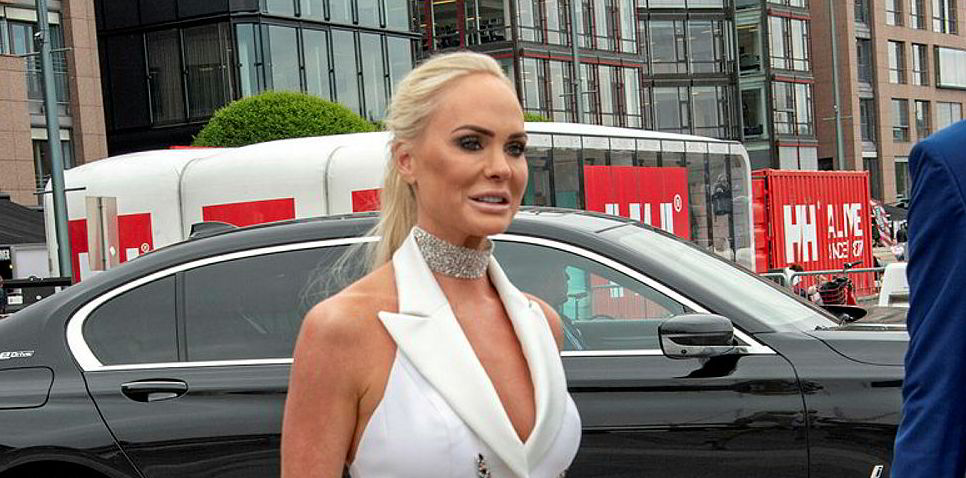
Fredriksen’s confidence in the tanker market particularly was backed up earlier this week when Frontline announced its second-quarter results.
"We believe this is an inflection point in the tanker market and have positioned Frontline to be in pole position of this development,” said chief executive Robert Hvide Macleod.
Tanker demand is being lifted by the return of refining capacity after maintenance closures, supply is being crimped by the impact of new IMO 2020 emissions rules, while rising US exports are extending the length of voyages.
Despite now being beyond the age at which most people retire, Fredriksen said he remained in good health. Colleagues say he works longer than many.
Good health
“I have just been to a health check and all the responses were good,” he said. His father Gunnar Fredriksen was 99 years old when he passed away last year.
As one of Norway’s most high-profile business people, he lamented the shipping industry’s recruitment record in recent years.
“I must say the recruitment to shipping has been poor, not least in Norway, where we are very short of qualified people.
“That makes it even more challenging to find the right people to our system. For young people, shipping has not been the preferred choice of career, contrary to some 20, 30 years ago.”
